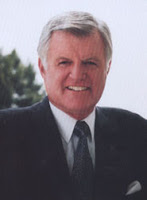And I know that economist/columnist Paul Krugman has tended to support Barack Obama's actions since taking office. Sometimes, he hasn't thought those actions went far enough, but he supported them, anyway.
 Well, today I was mildly shocked when I read the headline on his column in the New York Times — "Missing Richard Nixon."
Well, today I was mildly shocked when I read the headline on his column in the New York Times — "Missing Richard Nixon."Now, Nixon spent the last 20 years of his life trying to rehabilitate his image. Initially, he was about as grudging as Pete Rose, determined not to admit that he had made a mistake. But he came to the conclusion rather quickly that he had to offer his mea culpa before he would be forgiven.
There are times, as Krugman has discovered, when Nixon doesn't look so bad in hindsight.
One such time is the current health care reform debate. Most of us remember when Bill Clinton and the Democrats tried to reform health care in the 1990s, but not as many Americans remember when reforming health care was on the agenda in the early 1970s.
"Many of the retrospectives on Ted Kennedy's life mention his regret that he didn't accept Richard Nixon's offer of a bipartisan health care deal," Krugman writes. I couldn't have been very old when that happened. I have no memory of it so I'll have to take Krugman's word for it.
But Krugman writes that "[t]he moral some commentators take from that regret is that today's health care reformers should do what Mr. Kennedy balked at doing back then, and reach out to the other side."
I've heard that from others. But Krugman doesn't buy it — "surveying current politics, I find myself missing Richard Nixon."
Wait a minute. Hold the phone. I can remember Nixon's landslide victory in 1972, and I can remember when he resigned two years later. Nixon was never popular with my parents and their friends, but when he left office, it literally seemed to me that he was universally despised.
It's been 35 years since he left office, and it's been 15 years since he died. Individual attitudes toward Richard Nixon the man may have softened, but I never expected to hear or read anyone say they missed having him in the White House.
Fortunately, Krugman was quick to elaborate.
"No, I haven't lost my mind. Nixon was surely the worst person other than Dick Cheney ever to control the executive branch. But the Nixon era was a time in which leading figures in both parties were capable of speaking rationally about policy, and in which policy decisions weren't as warped by corporate cash as they are now."
Well, that makes sense. Especially when he goes on to suggest that the influence of corporate cash has rendered the nation ungovernable. But it isn't that tidy.
"Nixon's proposal for health care reform looks a lot like Democratic proposals today," Krugman writes. "In fact, in some ways it was stronger. Right now, Republicans are balking at the idea of requiring that large employers offer health insurance to their workers; Nixon proposed requiring that all employers, not just large companies, offer insurance."
What happened? The right wing took over the Republican Party, Krugman says. "Moderate Republicans ... have either been driven out of the party or intimidated into silence."
But that's too simplistic as well. "We tend to think of the way things are now ... as the way it always was," Krugman writes. "But our corporate–cash–dominated system is a relatively recent creation, dating mainly from the late 1970s. And now that this system exists, reform of any kind has become extremely difficult. That's especially true for health care, where growing spending has made the vested interests far more powerful than they were in Nixon's day."
It is enough to spark memories of Deep Throat's admonition to Woodward and Bernstein — just follow the money.
"Given the combination of G.O.P. extremism and corporate power," Krugman writes, "it's now doubtful whether health reform, even if we get it — which is by no means certain — will be anywhere near as good as Nixon's proposal, even though Democrats control the White House and have a large Congressional majority."
As he wrapped up his column, Krugman appears to have thought that he was coming off as too pessimistic. "I'm not saying that reformers should give up," he writes. "They do, however, have to realize what they're up against."
That, too, seems to be a rational answer, and that leads us to what may be an insurmountable problem. Krugman manages to touch on it at the end.
Many of those who voted for Obama, it seems to me, have invested a lot of their emotional well–being into the belief that the election of Obama last year was a transformational moment for the nation. I have thought all along that it was a step that had to be taken at some point, but it did not ultimately resolve anything.
Thinking that it did is nothing more than denial.
"[T]rue transformation, it turns out, requires a lot more than electing one telegenic leader," Krugman says. "Actually turning this country around is going to take years of siege warfare against deeply entrenched interests, defending a deeply dysfunctional political system."
Emphasizing job creation seems a little more logical now, doesn't it? Putting people to work is something everyone can agree on, right?















